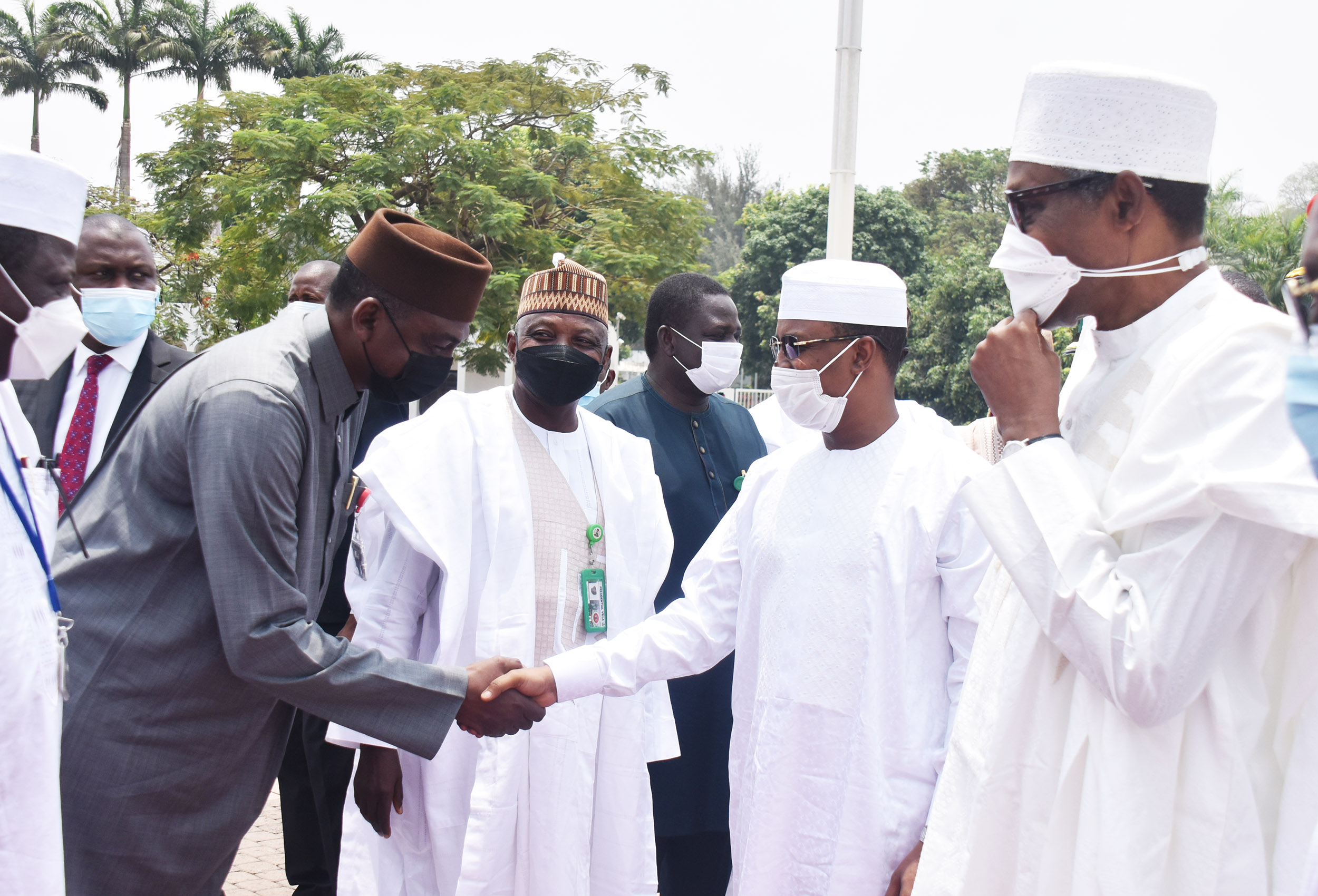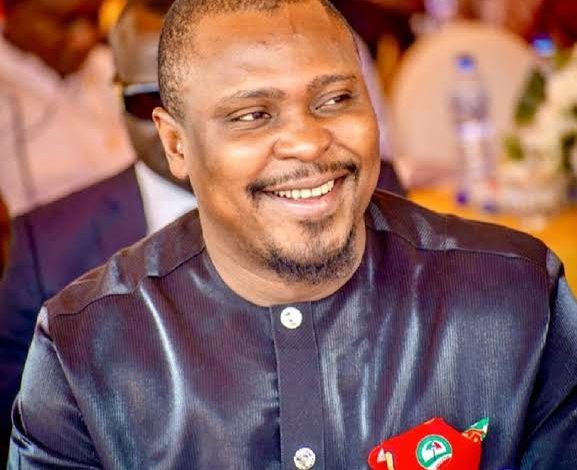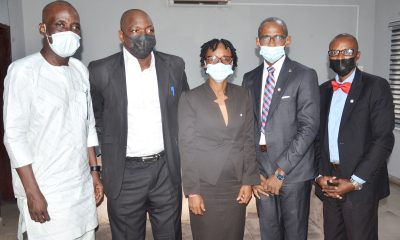News
Obey ECOWAS Judgement, SERAP Tells Buhari

Socio-Economic Rights and Accountability Project (SERAP) has urged President Muhammadu Buhari to “enforce the judgement by the ECOWAS Court of Justice compelling your government to delete the offence of ‘insulting or stalking public officials online’ from the Cybercrime Act.”
SERAP urged him to “urgently send an executive bill to the National Assembly to repeal the unlawful provisions, and reform all laws, which are inconsistent and incompatible with freedom of expression and media freedom.”
The judgement, delivered by the court last week in Accra, Ghana followed the suit number ECW/CCJ/APP/09/19 brought by SERAP.
SERAP also urged him to “direct the Attorney General of the Federation and Minister of Justice,Mr Abubakar Malami, SAN to withdraw all pending charges of ‘insulting or stalking public officials online’ against activists, critics and journalists, and immediately ensure their release from unlawful detention.”
SERAP urged him to ensure that “those who have faced unfair prosecutions under the unlawful provisions receive adequate compensation.”
In the open letter dated April 2, 2022, and signed by SERAP Deputy Director, Kolawole Oluwadare, the organisation said, “This judgement is a victory for many Nigerians who continue to face harassment, intimidation and unfair prosecutions solely for peacefully exercising their human rights online.”
The provisions of Section 24 of the Cybercrime Act, among others, criminalise sending or causing to be sent an “offensive, insulting or annoying message via a computer system or network.”
The offence is punishable, including by a fine of up to N7,000,000.00 or imprisonment of up to three years or both.
SERAP had argued before the ECOWAS Court that, “The Federal Government and several state governments have used the vaguely worded provisions of the Cybercrime Act to trample on the rights to freedom of expression and information of bloggers, journalists, activists, and social media users.”
In its judgement, the court agreed, and ruled that “Section 24 of Cybercrime Act is inconsistent and incompatible with Article 9 of the African Charter on Human and Peoples’ Rights and Article 19 of the International Covenant on Civil and Political Rights to which Nigeria is a state party.”
The court then ordered the Federal Government to “amend section 24 of the Cybercrime Prohibition Act in accordance with Nigerian obligations under Article 1 of the African Charter on Human and Peoples’ Rights.”
The letter, read in part: “The immediate enforcement and implementation of the judgement by your government will be a victory for the rule of law, the right to freedom of expression and media freedom online. This will improve citizens’ participation in their own government, and provide an impetus for the anti-corruption fight.
“By implementing the judgement, your government will be demonstrating Nigeria’s leadership within the ECOWAS sub-region, and sending a powerful message to other countries to embrace the rule of law and human rights.
“With the ECOWAS Court judgement, all federal and state authorities must now stop using the provisions of section 24 of the Cybercrime Act to target, harass, intimidate, arbitrarily arrest and detain and unfairly prosecute social media users, activists, and journalists who express views perceived to be critical of governments.
“SERAP notes that Article 15(4) of the ECOWAS Treaty makes the Judgement of the Court binding on Member States, including Nigeria. Also, Article 19(2) of the 1991 Protocol provides that the decisions of the court shall be final and immediately enforceable.
“Furthermore, non-compliance with the judgement of the court can be sanctioned under Article 24 of the Supplementary Protocol of the ECOWAS Court of Justice, and Article 77 of the ECOWAS Treaty.
“SERAP trusts that you will see compliance with this judgement as a central aspect of the rule of law; an essential stepping stone to constructing a basic institutional framework for legality, constitutionality. We, therefore, look forward to your positive response and action on the judgement.
“The judgement read by Hon. Justice Gberi-De Quattara (presiding judge), Hon. Justice Dupe Atoki (member) and Hon. Justice Keikura Bangura (member), chronicled details of Nigerian government officials using the Cybercrime Act, particularly its Section 24 as a pretext to harass, intimidate, detain, prosecute and imprison activists, journalists, bloggers, and social media users.
“In its judgement, the ECOWAS Court held that ‘The court has the jurisdiction to hear and determine the suit. In a plethora of decisions, the court has upheld that the mere allegation of human rights violations is sufficient to invoke this human rights mandate pursuant to Article 9 (4) of the Supplementary Protocol.’
“In view of the fact that this application is premised on human rights violations pursuant to Article 9(4) of the supplementary protocol, the court holds that it has jurisdiction to hear and determine the suit.
“According to the ECOWAS Court, ‘The allegation of SERAP before the Court for determination on merit is whether the provision of the Cybercrime Act has violated the right to freedom of expression, information, opinion, and privacy in contravention of Article 9(1) and (2) of the African Charter on Human and Peoples’ Rights and Article 19 of the International Convention on Civil and Political Rights.’
“The ECOWAS Court then stated that, ‘Section 24 of the Cybercrime Act is not in conformity with Article 9 of the African Charter and Article 19 of the International Convention on Civil and Political Rights. As for reparation, Nigerian Government is ordered to amend Section 24 of the Cybercrime Act, in accordance with the obligations under Article 1 of the African Charter of Human and Peoples’ Rights.’
“SERAP also notes that by virtue of Article 24(4) of the Protocol A/P.1/7/91 relating to the ECOWAS Community Court of Justice as amended by the Supplementary Protocol A/SP.1/01/05 in January, 2005, every member state of the Economic Community of West African States is required to designate a National Authority for the enforcement of the judgements of the Community Court of Justice.”
“Pursuant to the provisions of the article 24 of the Protocol of the Community Court, the Federal Government decided in 2014 to designate the office of the Attorney-General of the Federation and Minister of Justice as the Competent National Authority for the enforcement of the decisions of the court in Nigeria.”
The letter was copied to Mr Malami.
News
Bonny-Bodo Road: FG Offers Additional N20bn, Targets December Deadline

The Federal Government has agreed to offer additional N20.5 billion for the completion of the Bonny-Bodo road project in December.
The government, however, said if the construction company, Julius Berger, was not ready to accept the offer, the contract will be terminated.
Minister of Works, David Umahi, said this during a meeting with the Managing Director of Julius Berger, Lars Ritcher and members of Bodo-Bonny Road Peace Committee, on Wednesday in Abuja.
The reports that Julius Berger had requested asking for a N28 billion variation on the 82 per cent completed project.
The company hinged its request on the rise in exchange rate, construction materials, and diesel among others.
Umahi, however, said the government was willing to provide N20 billion out of the N28 billion that Julius Berger requested for.
According to him, the Bonny-Bodo road contract which was initially awarded at the cost of N120 billion in 2015, was later varied at N199 billion with a completion dateline of December 2023, which has since elapsed.
The Tide’s source recalls that in 2017, an agreement between the Federal Government, Nigeria Liquefied Natural Gas (NLNG) and Julus Berger on modalities for funding the project cost of N199.923 billion, without any further increase.
“If you do not accept the Federal Government’s offer by Friday and resume work on the site, the previously expired 14-day ultimatum for termination of project will be enforced.
“I want to let you know that we are the client. No contractor will dictate for this ministry, and there is no job that is compulsory that a particular contractor must do.
“We give you an offer. If you do not like the offer, you walk away. You don’t force us or we don’t force you.
“Agreement of contractual relationship is a mutual understanding,’’ the minister said.
Umahi said that had Julius Berger adhered to the project timetable, the project would have been completed on schedule before the impact of foreign exchange.
“Our position is very simple, we reject the conditions of Julius Berger totally and we ask Berger to please go back to the site to complete the project based on our offer.
“Our offer is unconditional and we say, accept or reject, so you cannot subject our offer to your conditions ,’’ he added
Umahi said the company should be humble in its dealings and exhibit solidarity during challenges.
Earlier, Richter had explained that the company suspended work on the site to seek some clarifications from the ministry.
According to him, the company asked for the augmemtation of N28 bilion because as at the time the contract was awarded the exchange rate was N305 to a dollar and diesel was N350 eor litre.
“We will still require some outstanding materials; that means that the initial agreement can’t fly because the variation of project is not sufficient and the exchange rate is also not in our favour to compensate the additional costs.
“That is why we decided to go back to our original proposal of the augmentation. Augmentation is a very normal process for all contracts,” the managing director said.
Chief Abel Attoni, Palace Secretary, Bonny Kingdom, expressed gratitude to President Bola Ahmed Tinubu over the decision to complete the Bodo-Bonny road project.
Attonu urged the parties to be patriotic and make the necessary sacrifice for the actualisation of the project.
News
Court Vacates Arrest Warrant Against Ehie, Five Others

The Federal High Court, sitting in Abuja, yesterday, set aside the warrant of arrest against Rt. Hon. Edison Ehie, the Chief of Staff, Government House, Rivers State, and five others.
Justice Emeka Nwite stated this while delivering his ruling in an application seeking to vacate the warrant of arrest which he issued on January 31, 2024.
The Judge said he was misled by the police in ordering the arrest of Ehie in connection with the burning of the Rivers State House of Assembly on October 30, 2023.
The Police, had told the court that Ehie and five others masterminded the bombing of the Rivers State House of Assembly amid a plot to impeach Rivers State Governor, Siminalayi Fubara.
The five others are Jinjiri Bala, Happy Benedict, Progress Joseph, Adokiye Oyagiri, and Chibuike Peter, alias Rambo.
Justice Emeka Nwite while setting aside the warrant said it has now become a mere academic exercise.
The judge further granted same to the 2nd to 5th Defendant/Applicant in same suit.
Femi Falana, SAN, and Oluwole Aladedoye, SAN, who appeared for the defendants in separate suits, held that the court lacked the jurisdiction to have granted the order.
While Falana filed a motion seeking an order to set aside the January 31 order by Justice Nwite, Aladedoye applied for a stay of execution of the arrest order.
In a motion marked: FHC/ABJ/CS/112/2024 dated February 2 and filed on February 7 by Falana, Ehie sought two orders, including “an order setting aside the order made on January 31 for want of jurisdiction.
“An order of this honourable court staying the execution of the order made on the 31st January 2024, pending the hearing and determination of this application.”
Giving six grounds of argument, Falana argued that the complainant had not filed any criminal charge or motion before the court.
The senior lawyer argued that the court lacked the territorial jurisdiction to entertain the ex-parte application as the alleged offences of conspiracy, attempted murder, murder and arson took place in Port Harcourt, the state capital.
“He submitted that the court lacked the vires to grant an application to arrest and declare his clients wanted in respect of the alleged offences.
“The complainant/respondent (IG) did not adduce evidence of terrorism in the affidavit in support of the application.
“The complainant/respondent did not cite any section of the Terrorism Prevention Act, 2013 (as amended) alleged to have been contravened by the applicants,” he argued.
Aladedoye in a motion on notice dated and filed February 9, on behalf of the five defendants, sought two orders, including
“an order staying execution or further execution of the order(s) of this honourable court made on the 31st of January, 2024, pending the hearing and determination of the appeal filed by the applicants.
“An order of injunction restraining the complainant from carrying out or further carrying out the orders of this honourable court made on the 31st January 2024, pending the hearing and determination of the appeal filed by the applicant in this case.”
Giving a three-ground argument, Aladedoye said that a notice of appeal had already been filed against Justice Nwite’s orders.
According to the senior lawyer, the notice of appeal contains grounds that challenge the jurisdiction of the honourable court.
The Inspector-General had, in a charge marked: FHC/ABJ/CR/25/2024, arraigned the defendants on a seven-count criminal charge bordering on terrorism and murder.
News
13 Students Bag First Class, 182 PhD As IAUOE Graduates 5,550, Today
The authorities of Ignatius Ajuru University of Education (IAUOE), Rumuolumeni, in Rivers State, have stated that 13 students will be graduating with first class while 182 graduands will bag Ph.D during the 42nd convocation ceremony of the university billed to hold today and tomorrow.
The Acting Vice Chancellor of the University, Prof. Okechuku Onuchuku, disclosed this during pre-convocation press briefing held in his office, yesterday, to unveil the programme for the convocation ceremony.
Onuchuku said that the 13 students were among the 4,653 graduands expected to graduate for the 2022/2023 academic session with first degree, while 897 students will be graduating with postgraduate degrees.
The Acting Vice Chancellor while giving the breakdown stated that 13 students made first class, 890 students bagged second class upper while 2,739 students had second class lower for first degree.
He further stated that 182 graduands bagged PhD, 667 got master’s degree and 48 got postgraduate diploma, adding that the convocation ceremony will hold today and tomorrow for first degree graduands and postgraduate graduands respectively.
He said that a total of 47 programmes out of the 54 programmes being undertaken at the first degree levels had been given full accreditation by the National University Commission (NUC) as well as all the programmes at the postgraduate school.
“We have ensured that our programmes both at the first degree and post graduates are in line with the NUC stipulated guidelines and speculations. We have also ensured that we are in line with both our academic and administrative policies,” he said.
Prof. Okechukwu urged the graduating students of the institution to always remember to use thier positions to help their alma mater as well as project the institution in a good image in the larger society.
“Try to ensure you finish any project you want to do, evaluate it first and avoid unfinished or abandoned projects. We will be graduating first degree graduands on Friday while Saturday will be for postgraduates, “he added.
Prof. Onuchukwu also said his administration had achieved a lot since he assumed office as Acting Vice Chancellor, stressing that his administration had improved on the welfare of the staff and the students.
“There are a lot of projects completed in the school; we have also given scholarship to some students and also encouraged departments to do same. We also impacted positively on our host communities”, he said.
Akujobi Amadi
-

 Maritime5 days ago
Maritime5 days agoFG Launches National Single Window Steering Committee
-

 News5 days ago
News5 days agoAgain, NCDMB Emerges Best Performing Agency
-
News1 day ago
Fubara Recommits To Good Governance …Urges ANAN To Sustain Excellence Insists State’s Safe For Business
-
Nation23 hours ago
APC Urges Gov Aiyedatiwa To Run Inclusive Govt
-

 Retrospect5 days ago
Retrospect5 days agoFubara Restates Commitment To Transparency In Governance
-

 Niger Delta5 days ago
Niger Delta5 days agoNDDC Completes 25.7km Ogbia-Nembe Road Project
-
Niger Delta24 hours ago
C’River Declares NBS Child Labour Ranking Unrealistic
-

 Business23 hours ago
Business23 hours agoSMEs Critical For Sustainable Dev – Commissioner

